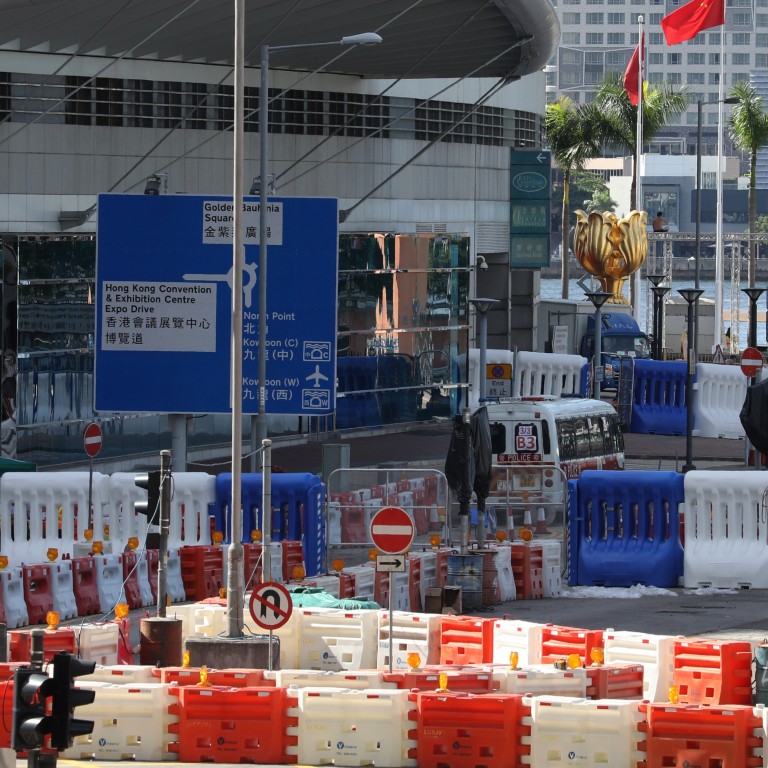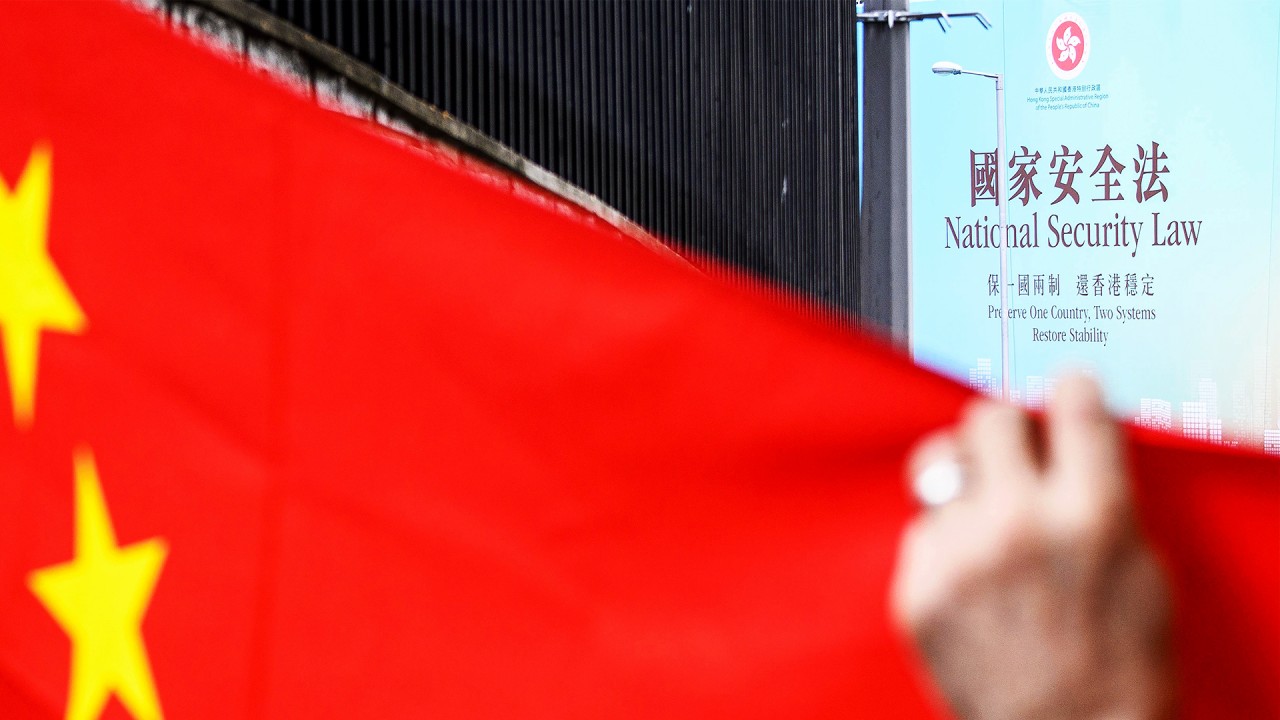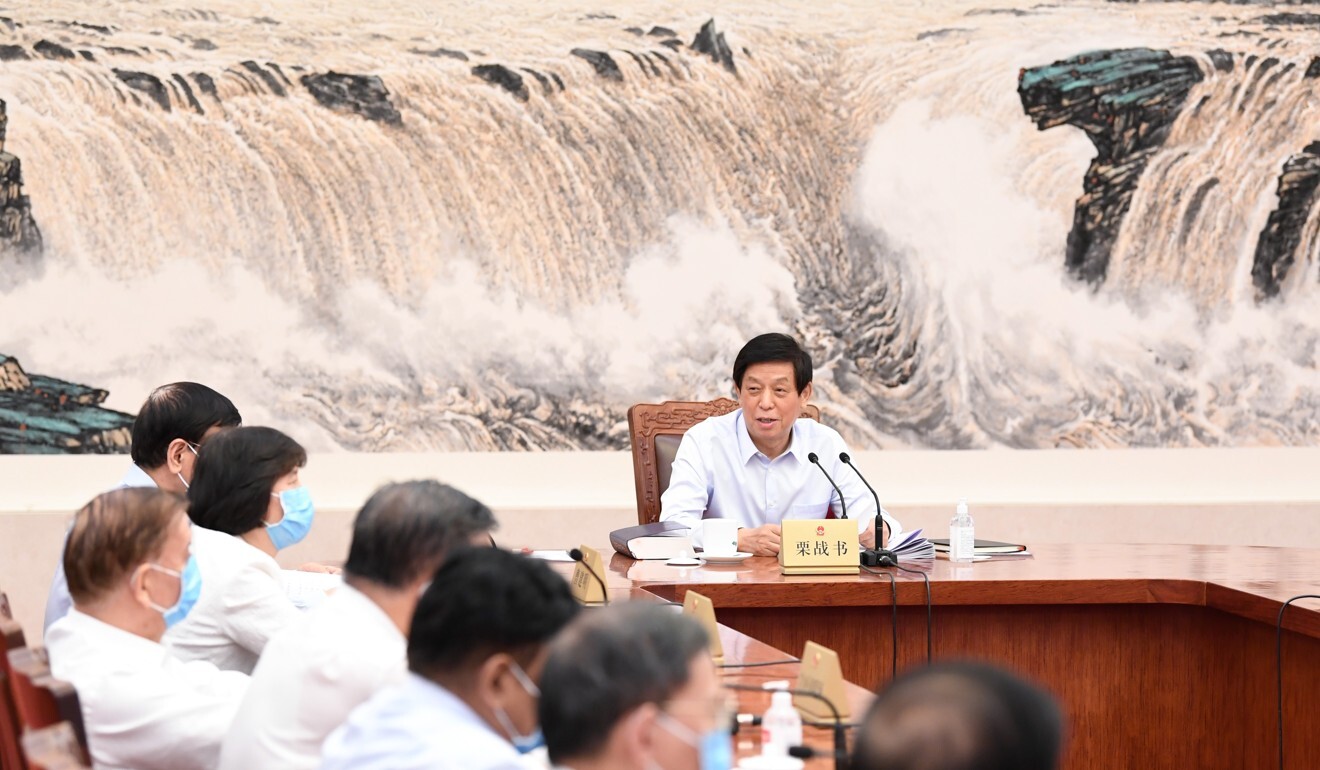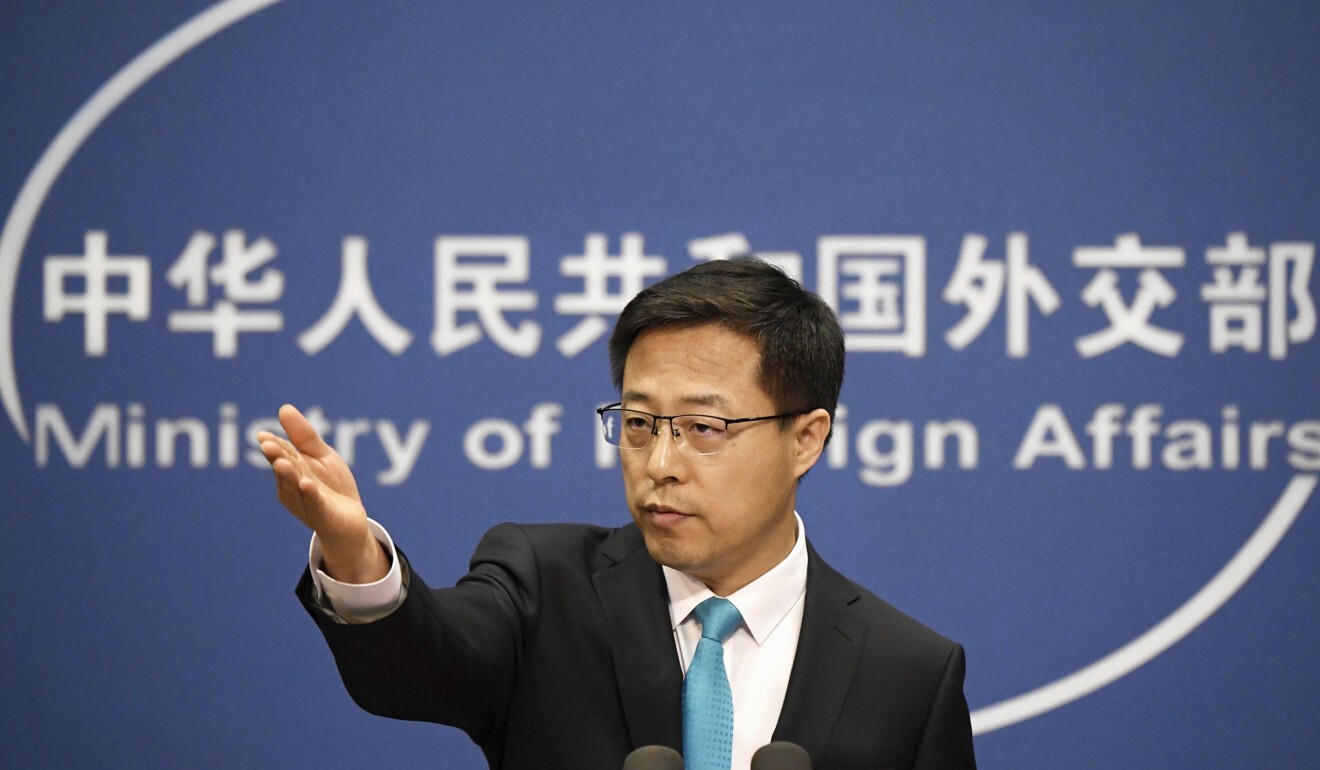
National security law: Beijing slaps visa restrictions on US officials who ‘meddle’ in Hong Kong affairs as local authorities gear up for sweeping new roles
- Move comes after Washington announced its own sanctions against party members who undermine the city’s degree of autonomy, rights and freedom
- Police expected to establish a third deputy commissioner who will lead new 200-member unit akin to Special Branch
China’s retaliation against what it described as the United States’ interference in the city’s affairs came as the Hong Kong government was preparing to carry out its new duties required under the law, including designating a third deputy police commissioner to head a unit dedicated to enforcing it.
The new unit could have as many as 200 people at its launch and operate in a way similar to the colonial-era Special Branch, focusing on intelligence gathering and enforcement.
A top public security official was expected to take the helm of a new national security commissioner’s office set up by mainland authorities in Hong Kong, other sources said.

01:36
China to restrict visas for Americans 'interfering’ in Hong Kong
The National People’s Congress Standing Committee is expected to wrap up deliberations on Tuesday and pass the new law that targets secession, subversion, terrorism and collusion with foreign forces that endanger national security. Offenders face a maximum punishment of life imprisonment with the new legislation expected to be gazetted and imposed the very next day on July 1, also the 23rd anniversary of the city’s handover to China from British rule.
In what could be a test of how the new law could be enforced, Hong Kong’s activists say they plan to disregard any police ban of the traditional July 1 march and engage in civil disobedience to protest against the law.

The national security law will be the only item put to a vote at the meeting of the nation’s top legislative body starting at 9am on Tuesday. A member of the Basic Law Committee, who spoke on condition of anonymity, said the committee that advises Beijing on Hong Kong’s mini-constitution would meet “immediately after the standing committee passed the law to discuss its insertion into Annex III of the Basic Law”.
The standing committee will then apply the legislation to Hong Kong. A source familiar with the situation said Xinhua, the official state news agency, would publish the law’s details early in the afternoon, marking the first time it will be fully disclosed to the public.
HSBC faces more questions over support of national security law
All Hong Kong delegates to the nation’s top advisory body, the Chinese People’s Political Consultative Conference, and the National People’s Congress, have been asked to attend a meeting at the central government’s liaison office at 3pm on Tuesday. “It is expected to be a briefing on the national security law,” an invited delegate said.
Foreign ministry spokesman Zhao Lijian on Monday said any efforts by the US to hinder Beijing’s introduction of the national security law in Hong Kong were “doomed to fail”.

“In view of the erroneous actions of the US, China has decided to impose visa restrictions on US officials who behave egregiously on Hong Kong-related issues,” Zhao said, without saying who or how many officials would be targeted. “No matter how Hong Kong separatists squawk, and no matter what kind of pressure is exerted by external anti-China forces, their scheme to obstruct the passage of the Hong Kong national security law will never prevail and the bill is but piece of waste paper,” he said, referring to the US Senate’s passage of the Hong Kong Autonomy Act last week.
On Friday, US Secretary of State Mike Pompeo announced the visa restrictions on serving and former Communist Party officials “believed to be responsible for, or complicit in” undermining the city’s autonomy, rights and freedoms. Pompeo did not elaborate and China responded immediately by threatening retaliation.
Last week, European Union leaders warned Chinese President Xi Jinping of “very negative consequences” if the law were enacted.
“The national security law risks seriously undermining the one country, two systems principle,” European Commission President Ursula von der Leyen said. “We also conveyed that China risks very negative consequences if it goes forward with imposing this law.”
Hong Kong PLA garrison live-fire video could be ‘warning to separatists’: analyst
The Hong Kong Autonomy Act seeks to sanction individuals or companies that have “materially contributed” to Beijing’s failure to comply with the Sino-British Joint Declaration on the Basic Law, the city’s mini-constitution. It comes on the heels of the Hong Kong Human Rights and Democracy Act that allows Washington to suspend the city’s special trading status based on an annual certification by the State Department about whether the financial hub retains a sufficient degree of autonomy under the one country, two systems framework.
The full draft of the sweeping national security law has not been made public. A broad outline covering several key issues released by Beijing on June 20 did not lay out penalties or specify whether it would be retroactive.
Ip Kwok-him, a Hong Kong deputy who sat in on the standing committee meeting starting on Sunday, said he believed media tycoon Jimmy Lai Chee-ying and activist Joshua Wong Chi-fung would not be arrested in the immediate aftermath of the law’s passing if they stopped “colluding with foreign forces”.
The pair have been accused of lobbying the international community to impose sanction on China for its tough stance on the city.
Dennis Kwok, the lawmaker representing the legal sector, said criminal laws could not be retroactive under common law. “If the acts, before the law kicks in, did not constitute a criminal act, the prosecutor cannot press charges for such acts,” Kwok said, stressing that was a matter of human rights.
In an interview with the Post early this month, Secretary for Security John Lee Ka-chiu said Hong Kong police were setting up a dedicated unit to enforce the new law, and it would be ready to function from day one.
The new unit’s officers could be drawn from the Security Wing and the organised crime and triad bureau and operate like the colonial-era Special Branch under the Royal Hong Kong Police Force.
The branch then was headed by a director holding the rank of deputy commissioner, who reported directly to the commissioner and the governor. It was said to be commanded by Britain’s domestic security agency MI5 and worked in conjunction with its secret intelligence service MI6 in the city, before being disbanded in 1995.
After Hong Kong was handed back to mainland China in 1997, the number of police deputy commissioners was reduced to two. They are responsible for the force’s operations and management.
Under the new law, Hong Kong is to set up a national security commission responsible for overseeing the law. It will be chaired by the chief executive and includes members such as the police commissioner and the person in charge of national security within the force – which could be taken up by the new deputy police chief, according to sources.
Insiders said a top mainland public security official would head the national security commissioner’s office in Hong Kong. The official is trusted by top leadership, familiar with the country’s national security apparatus and knows the rules for dealing with foreign organisations, according to sources.
The candidate leading the agency “will be announced soon after the enactment process of the new law”, a source said.
Activists could possibly launch their civil disobedience on the day the law comes into effect.
To prevent any disruption to ceremonies marking the July 1 anniversary of Hong Kong’s return to Chinese sovereignty, police have locked down the site where the event is taking place, the Convention and Exhibition Centre in Wan Chai.
Additional reporting by Clifford Lo and William Zheng




